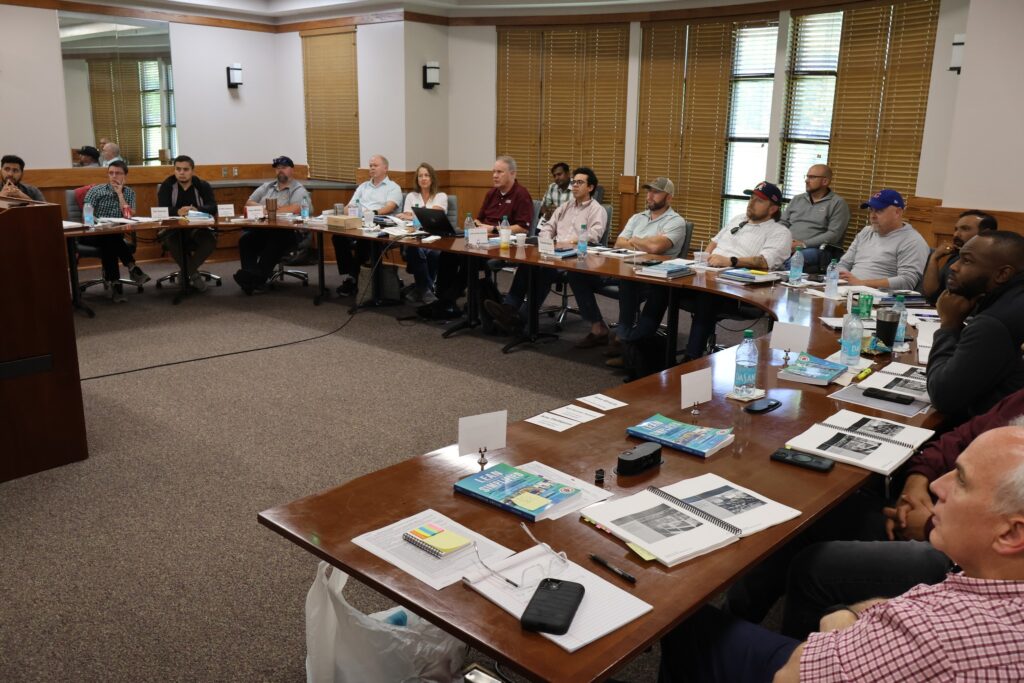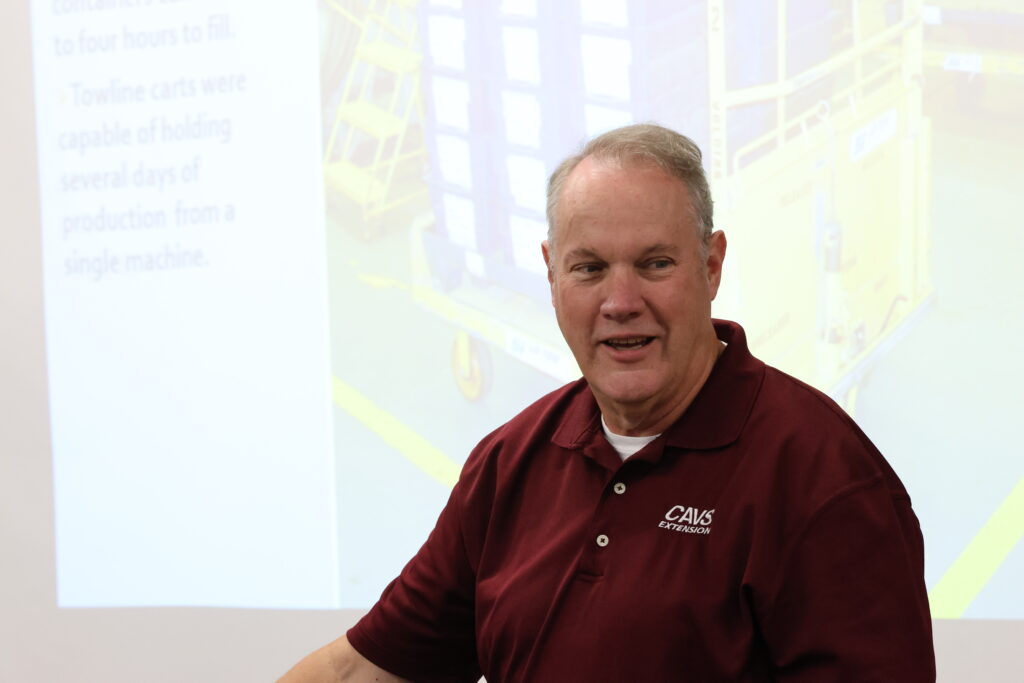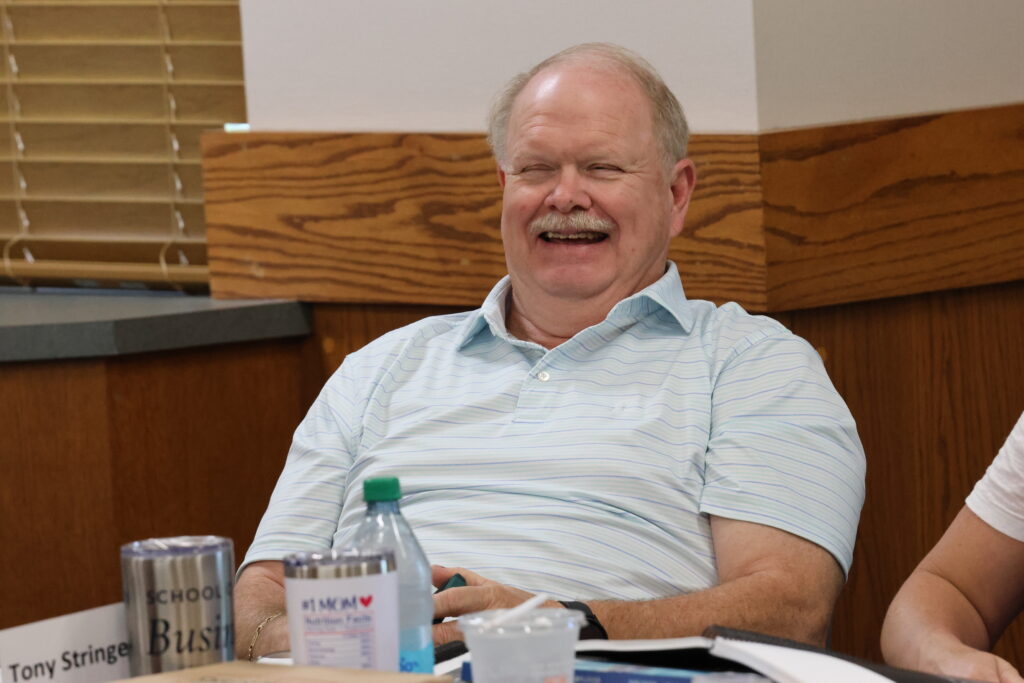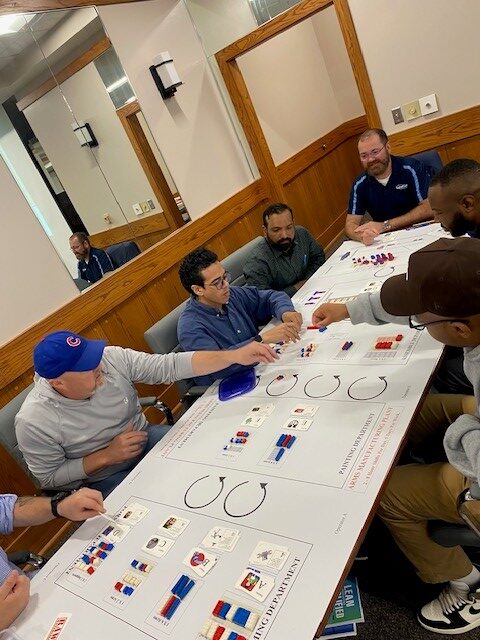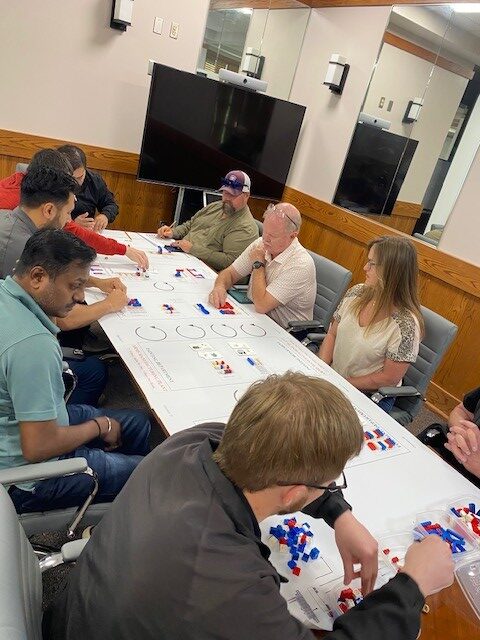Home »
How Lean Training Is Changing Careers and Companies in Mississippi
07/21/2025
HATTIESBURG, Miss. – When Mississippi industries seek practical solutions to strengthen operations and workforce skills, the Lean Manufacturing Certification program delivers results beyond expectations.
To ensure more companies and employees benefit from lean training, Pearl River Community College (PRCC) recently hosted the program in the Gulf Coast region. Bo Worley, industrial business developer at PRCC, said the training had previously been offered mainly in the Columbus and Canton areas for nearly two decades.
“We saw a need because the southern half of the state was not getting the same exposure to the training,” Worley said.
The training was funded by AccelerateMS through its Workforce Enhancement Training (WET) Fund, which supports high-impact, industry-aligned workforce development statewide.
By partnering with the Center for Advanced Vehicular Systems (CAVS) Extension at Mississippi State University, PRCC coordinated all logistics, managed student communication, and ensured seamless delivery, benefiting nine companies across three community college districts.
“Companies will be able to streamline and save a lot of money, make themselves more efficient, and eliminate a lot more waste,” Worley said.
Looking ahead, PRCC hopes to integrate the training into the Extension’s ongoing annual schedule to equip regional industries with tools to build quality, value employee input, and drive continuous improvement.
The Lean Manufacturing Certificate program, offered by CAVS Extension, originated as part of an initiative to support Nissan suppliers in the state. Over nearly three decades, it has expanded to serve industries from printed circuit boards and chicken processing to healthcare and legal services.
John Moore, project manager at CAVS Extension, said the program takes a “learn-to-swim” approach, requiring participants to complete improvement projects as proof of their learning.
“They learn to do the process improvement and they go out and do it,” Moore said.
Unlike online certificates, this program combines in-person training with long-term coaching to ensure practical skills transfer directly to the workplace. Moore added that these skills are rarely taught in traditional academic environments.
“Engineers and managers come into the class and can take these things back and apply them right away,” he said.
For many, the training also builds long-term career momentum.
“This is a good career builder. This is a good thing that gives you an opportunity for learning skill sets that lead to higher levels of management,” Moore said.
Amarion Vaughn, a lean implementer at Johnson Controls, took the class to deepen his understanding beyond what he learned as an industrial engineering student and during his early career at Milwaukee Tool. The training expanded his view of lean principles and how they apply practically.
“This class has opened my eyes to a more high-level understanding of all the principles,” Vaughn said.
Today, Vaughn helps plan plant operations for the next three to five years, ensuring efficient processes for custom air handling units — a challenging environment for lean applications. He said the training gave him clarity in his career direction and made his work feel meaningful.
“I would recommend this class to them to see that we’re not just coming into your department and just moving stuff. We’re moving it for a reason to better help you in the long run,” he said.
For Tony Stringer, president of Stringer Industries, the training delivered structured, practical approaches to continuous improvement in his sawmill operations. Learning methods like the 5S system highlighted overlooked inefficiencies draining productivity each day.
“We’ve been improving and continually try to improve, but there are some missing things that we did not have. This class has opened that door so far,” Stringer said.
Rather than forcing top-down changes, Stringer focuses on employee engagement and small, incremental wins.
“We’ve targeted one section, our CNC machine shop. My goal is to take one area, really get them going, and then use that as a showcase area to let it bleed into other areas,” he said.
He acknowledges that real transformation takes time.
“My goal is ASAP, but you can’t do it all that way. It’s just little bites,” Stringer said.
Still, his team is already seeing meaningful early improvements, building momentum for broader implementation in the years ahead.
The program’s impact extends beyond company training to education and change. Jason Walters, an automation and controls technology instructor at PRCC, enrolled to better align his curriculum with modern manufacturing practices.
“Taking this Lean Manufacturing Certification will help us connect real-world industry best practices to what we teach in our curriculum,” Walters said.
He believes integrating lean principles into instruction will better prepare students for what they will encounter in today’s manufacturing environments.
“If we can apply lean principles to our curriculum, it will help us prepare students for what to expect when they go into a manufacturing environment,” he said.
From expanding access across Mississippi to equipping companies with actionable skills, the Lean Manufacturing Certification program is shaping the state’s industrial future. Its hands-on, project-based approach drives continuous improvement and empowers both seasoned professionals and emerging talent to build efficient, competitive, and resilient operations — one small, meaningful change at a time.
AccelerateMS serves the people and businesses of Mississippi by developing and deploying workforce strategies to connect individuals with transformative, high-paying careers. By leveraging resources and partnering with organizations that hold complementary missions, AccelerateMS effectuates positive change, creating sustained individual, community, and statewide economic prosperity.
